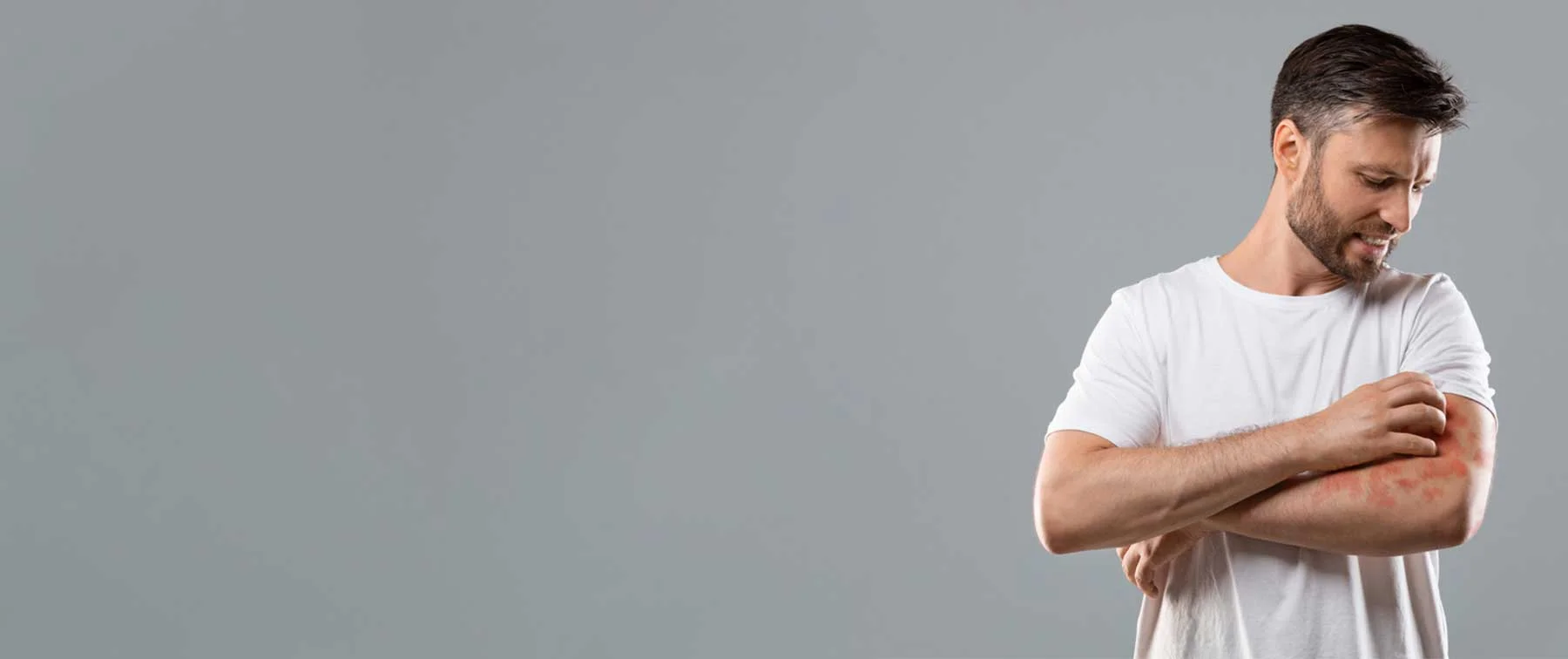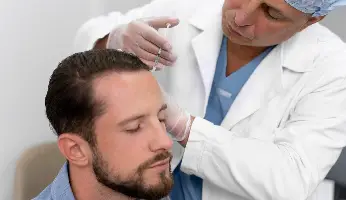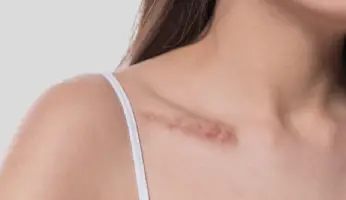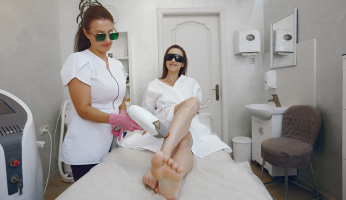
Experiencing any changes in skin appearance or itchy, raised rashes? It can be Eczema! Eczema is a very common skin concern that can happen to anybody. Most people having eczema are not aware of it and ignore the condition. Those who have not spotted their eczema early and treated it well in time may experience worsening of their skin condition.
Dr. Rajdeep Mysore, Best Dermatologist in Bangalore, at Charma Clinic can help prevent, diagnose, and treat medical skin problems like eczema. That is why, people with any skin issue are recommended to see a skin doctor. If you are having eczema symptoms or seeking treatment, Dr. Rajdeep Mysore can help you! Read on to know everything about eczema from the skin experts at Charma Clinic.
What is Eczema?
Eczema is a medical skin concern wherein the patches of an individual’s skin start turning rough, cracked, inflamed, and itchy. Sometimes, the condition can lead to the formation of blisters on the skin. People mostly refer eczema to as atopic dermatitis.
Eczema can happen to individuals of any age group. Especially, it occurs in infants and young children.
Symptoms of Eczema that People Experience
The symptoms of eczema can vary based on the individual’s age and the severity of the condition. Those who have eczema often experience times when their symptoms worsen followed by times when their symptoms clear up. Mostly eczema symptoms are mild.
The general signs of eczema or atopic dermatitis are:
- Flushed skin
- Dry, scaly skin
- Itching skin
- Crusted, open, or weeping sores.
In non-white-skinned people, eczema rashes may appear brown or gray.
In infants, eczema rashes are often seen on the cheeks and scalp. These rashes may come up the skin surface before leaking fluids from inside and can cause ultimate itching at night that may further disturb sleep.
In children aged between 2-5 years, eczema rashes mostly appear behind the creases of their knees or elbows. The rashes can even appear on their neck, ankles, wrists, and the crease between the legs and buttocks. These are bumpy and can turn lighter or darker.
Some young patients of eczema may also experience skin thickening or lichenification, which can over time develop into a permanent itch.
Adults having eczema or atopic dermatitis often have scaly rashes that cover much of their bodies. Most adults have eczema rashes appearing in the creases of knees or elbows or the nape of the neck. These rashes may be itchy at all times. Other than rashes, adult eczema patients also experience very dry skin and skin infections in the area of eczema flare-ups.
People living in Bangalore location or all over India can consult Dr. Rajdeep Mysore for eczema treatment in Bangalore.
He offers best treatment for managing eczema as the condition if left untreated can affect one’s overall health.
What Causes Eczema?
To date, medical researchers have failed to figure out the exact cause of eczema. Many health professionals believe that eczema is an outcome of both genetic and environmental factors. Eczema in infants or young children is most likely the result of inheritance from an affected parent(s). The environmental factors that may bring out the eczema symptoms include:
- Skin irritants like detergents, soaps, disinfectants, and fresh fruit, vegetable, and meat juices
- Certain infections caused by bacteria, fungi, or viruses
- Some allergens like pollens, dust mites, mold, and pet dander
- Extreme weather such as very hot or cold weather, low and high humidity levels, and perspiration from exercises
- Stress or Hormonal fluctuations such as at the time of pregnancy or during menses- can aggravate eczema symptoms
- Some foods such as eggs, dairy products, seeds, wheat, soy, and nuts.
Types of Eczema
Atopic dermatitis is the most common form of eczema, shares skin doctor in Bangalore, Dr. Rajdeep Mysore. Besides, other types of eczema may include:
- Neurodermatitis- It is caused by a localized itch, such as an insect bite. It is characterized by scaly skin in patches on the head, wrists, forearms, and lower legs.
- Allergic/ Contact dermatitis- It is a kind of skin reaction in response to skin contact with an allergen or any foreign substance.
- Dyshidrotic eczema- This type is characterized by the appearance of blisters only on the skin of the sole of the feet and palms of the hands.
- Stasis dermatitis- It is a form of skin irritation of the lower leg usually resulting from circulatory issues.
- Discoid/ Nummular eczema- It is characterized by circular patches of irritated skin that can be itchy, crusted, or scaly.
How can dermatologists treat eczema?
Eczema can be managed with eczema treatment. There are several treatment options available for eczema that aims to heal the affected skin and prevent eczema flare-ups. The best-suited treatment plan is suggested to an eczema patient by Dr. Rajdeep Mysore, a dermatologist in Bangalore. It is based on the age, current health status, and symptoms experienced by the patient. A dermatologist is a skin specialist who can provide expert diagnosis and guidance on the treatment of eczema. For some people, eczema is a lifetime skin concern while for others it is a temporary skin condition where symptoms fade away over time.
Some of the dermatologist-prescribed treatments include:
- Topical medications- These include anti-inflammatory medications like corticosteroid-based creams or ointments, immunosuppressants like calc-ineurin inhibitors, and barrier repair moisturizers to repair dry skin by reducing water loss.
- Oral medications- These include immunosuppressants or systematic corticosteroids in the form of oral tablets or injections. Sometimes, antibiotics are prescribed if there is a bacterial skin infection. Antihistamines are prescribed in case of allergic eczema to reduce the risk of nigh-time scratching of the affected skin.
- Injectable therapy- This includes the use of biological drugs that obstruct immune system proteins for eliciting an immune response.
- Phototherapy- In this therapy, the dermatologist exposes the affected skin to UVA and UVB light to cease eczema flare-ups that cover the majority of the body's skin. It may even provide relief from itching and inflammation.
Self-care Tips for Eczema
To alleviate symptoms of eczema or to support skin health, eczema patients should take extra care at home. They should:
- Wear light, soft fabrics like cotton and not tight-fitted garments made of rough, scratchy fibers
- Daily moisturize skin- Apply moisturizers within 3 minutes of taking a bath
- Avoid using hot or very cold water to take a bath instead take lukewarm water
- Make use of a humidifier in the room when the outside weather is dry and cold
- Use a non-soap cleanser or mild soap to wash the affected areas of the skin
- Take extra precautions to avoid eczema flare-ups in winter
- Avoid any activities that rapidly change the body temperature or cause sweating, where possible
- Learn about possible triggers of eczema and avoid them
- Avoid rubbing or scratching the skin in the regions affected by eczema
- Try natural home remedies for eczema such as coconut oil, aloe vera, and apple cider vinegar.
Do visit Dr. Rajdeep Mysore at Charma Clinic, a skin clinic in Bangalore if you are suffering from eczema and get an effective treatment to get skin that is healthy and eczema-free.




